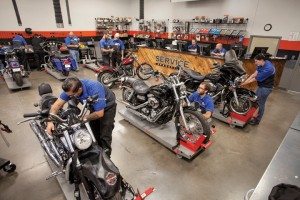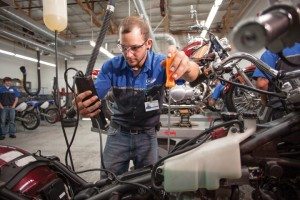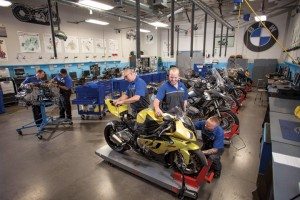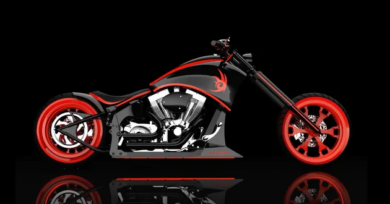MMI keeping pace with technology through OEM deals
Curriculum constantly updated to meet new demands
The powersports industry has changed dramatically in its 100-plus-year history, but it has also undergone major technological changes just in the past few decades. Most units now come standard with electronic fuel injection; more are offering ABS; automatic transmissions have entered the equation, and side-by-sides brought a whole new vehicle to the industry.
With these advancements, those in the service department, especially, have had to adapt to new challenges. As such, technical schools, which are training the next techs to enter the workforce, have had to make ongoing changes.
Luckily for Motorcycle Mechanics Institute, with campuses in Phoenix and Orlando, a close relationship with OEMs has meant the school is always up to date with the latest technology. MMI has partnered with BMW, Harley-Davidson, Honda, Kawasaki, Suzuki and Yamaha. Some of those relationships go back to the 1980s, while others, such as the one with BMW, are newer.
Because of those partnerships, MMI officials are informed as soon as new models or features are released. The OEMs also donate a variety of resources. The two campuses have 1,600 motorcycles between them, a large majority of which have been donated by the manufacturers themselves. The OEMs also donate some of the diagnostic equipment and special tools used by students.
“The important thing that really sets us apart from other schools is the backing of the manufacturers that we’ve had for many, many years,” said Dennis Hendrix, MMI’s VP of industry alliance for Motorcycle, Marine, NASCAR and Aftermarket.
That support allows MMI to have a firm grasp on what’s to come, so as technology changes, so do the courses.
Changing class descriptions

“Curriculum updating is an on-going process as technology and products advance for all OEMs, and as the needs of the industry change,” said Joe Loukota, MMI’s national program manager for Motorcycle and Marine.
Each MMI student goes through core classes before moving on to the manufacturer-based electives. In the core classes, students are taught universal wrenching skills and diagnostics. Hendrix said the students usually pick up the use of diagnostic equipment well because they’ve grown up using a variety of electronic equipment, but the training also goes beyond machinery.
“The whole purpose of the diagnostics is teaching the student how to think,” he said.
The manufacturers themselves then dictate what skills are taught in their elective classes. And with new models coming out each year, those OEM courses are constantly evolving around the latest needs.
“We’ve got a curriculum writing team that does nothing but write curriculum for our elective programs, which are our manufacturer elective programs. They’re doing that on a daily basis,” Hendrix explained.
 A major piece of the Harley-Davidson curriculum, for example, is currently being reworked for upcoming courses.
A major piece of the Harley-Davidson curriculum, for example, is currently being reworked for upcoming courses.
“2014 is a great year for Harley-Davidson with the Rushmore and Street models, and we are now in the process of updating the curriculum to teach the new product and technology,” Loukota said.
However, the curriculum isn’t just dictated by OEMs and MMI. The school also works with dealers. A Program Advisory Council meeting is held twice annually at each campus, bringing together MMI staff, OEM representatives and dealers.
“We change our curriculum so we can stay abreast of what the dealers out there need,” Hendrix said.
Refresher courses for grads
Because MMI’s courses are so up-to-date, graduates continue to revolve through the program whenever they’re looking to hone their skills.
“One of the things we’ve seen over the years is our past graduates from years ago come back for refresher training,” Loukota said.

MMI graduates who don’t receive ongoing support from their employer are welcome to re-take courses free of charge, as long as the program hasn’t changed dramatically.
As MMI is enhancing its classes, instructors also have to keep up, so they’re prepared to teach their students. Hendrix said the instructors, a lot of whom are MMI graduates, follow the industry closely — so they usually know what’s coming down the pike — but they’re also retrained as needed. MMI also provides factory training for current Harley-Davidson and Honda technicians, which also helps instructors advance.
With all these efforts, MMI’s goal is to have its students as prepared as possible to react to the challenges they will face when they enter a dealership.
“Our close relationship with the OEMs and their support with curriculum development results in graduates prepared to begin their career in the powersports industry,” Loukota said.








